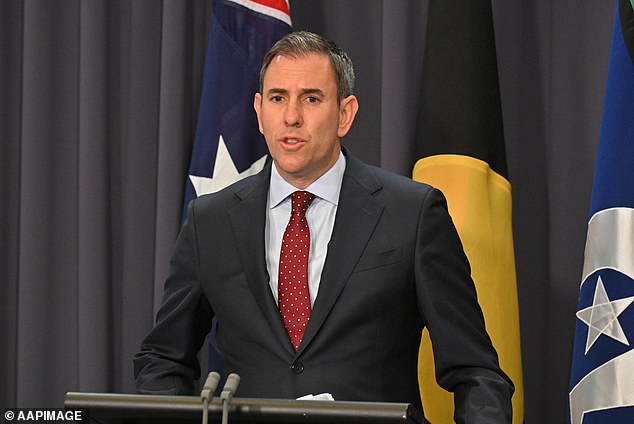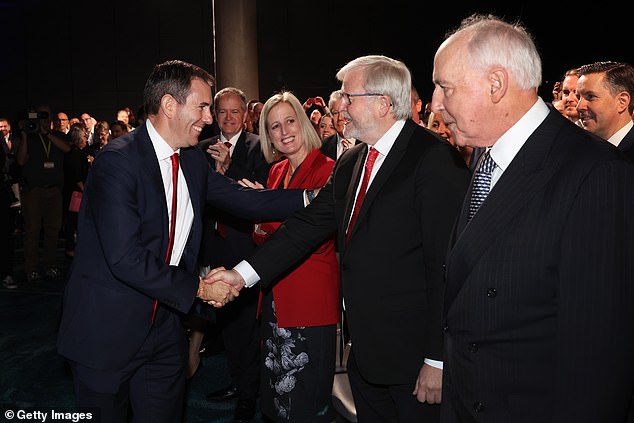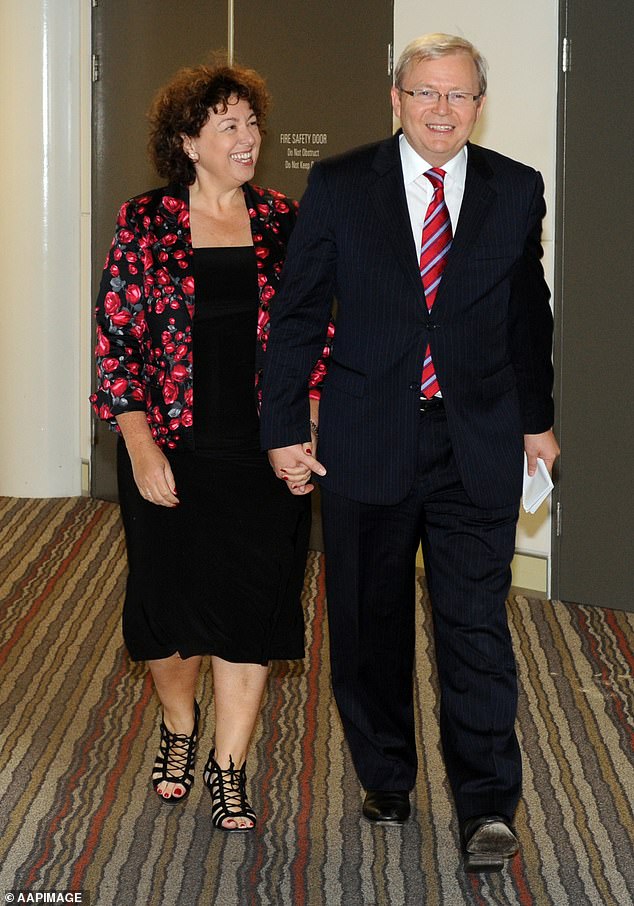Treasurer Jim Chalmers is on his way to the United States, where one of his first meetings will be with Ambassador Kevin Rudd.
Oh, to be a fly on the wall for that awkward meeting.
To put it bluntly, the two Queenslanders don’t like each other very much.
Chalmers used to be a member of Wayne Swan’s political staff – the sum total of his pre-parliamentary professional experience – when the former treasurer and deputy prime minister let go of Rudd during leadership tensions more than a decade ago.
In 2012, Swan issued a brutal statement criticizing the former prime minister with whom he had worked so closely. It came at a time when Rudd was considering another leadership change, to dethrone Julia Gillard and win back his old job.
“The party has given Kevin Rudd all the opportunities in the world and he squandered them with his dysfunctional decision-making and deeply degrading attitude towards other people, including our caucus colleagues,” Swan’s acidic statement read.
In fact, it was then-politician Jim Chalmers who wrote those words for his boss, reflecting a deep antipathy toward Rudd that both men share.
Rudd never forgot the attacks.
Australia’s ambassador to the United States, Kevin Rudd, is famous for his long memory…

In Rudd’s memoirs, he claimed that Chalmers pleaded to be allowed to keep his preselection, breaking down in tears.
He later claimed that Swan was “incompetent” and unfit to be treasurer, saying he only appointed him to the position to appease the ambitions of the right-wing faction operator.
In his memoirs, Rudd said that Swan was “not up to the job.”
If Rudd believes Swan was unfit to be treasurer back then, what does he really think of Swan’s mini-me, former employee Chalmers, now?
Not much, one assumes, especially considering the encounter between the couple that Rudd also details in his memoirs.
After Rudd returned as prime minister before the 2013 election, he claims Chalmers broke down in tears at a meeting between the pair, as he pleaded to be allowed to keep his preselection for the Queensland seat of Rankin.
According to Rudd’s account of the meeting, Chalmers flew to Canberra to meet Rudd and “beg” for his political life.
Rudd claims Chalmers “broke down crying in front of me,” then the pair had a few words before Chalmers “cried again.”
Chalmers has never shared his version of how the meeting unfolded.
The former prime minister also claimed in his 2018 memoir that he never heard from Chalmers again after leaving parliament five years earlier.
That all changed, of course, when Anthony Albanese became Labor leader in 2019, promoting Chalmers to the shadow treasury role.

Jim Chalmers is all smiles here as he greets Kevin Rudd during Labour’s 2022 federal election campaign. Albo and Rudd have been close for a long time
Albo and Rudd have been close for a long time. Albo was one of the few senior faction figures to support Rudd during his leadership clashes with Julia Gillard.
Once Albo became Prime Minister, he appointed Rudd as Australia’s ambassador to the United States, which meant that Rudd’s paths would regularly cross Chalmers’s whenever the Treasurer visited the United States.
This latest trip comes as the IMF adjusts its forecast for Australian inflation next year, moving it up rather than down. It’s not the kind of change Chalmers would very much like.
The Treasurer has long claimed that international factors are behind Australia’s persistently high inflation rate, yet the IMF has forecast that inflation in Australia will be higher than all the world’s advanced economies except the from Slovakia.
Australia ranks 40th out of 41 advanced economies, a surprisingly bad result.
If the IMF is right, the prospect of the RBA cutting interest rates early next year, as many predict, would likely require a worsening of economic behaviours, a rise in unemployment, or both.
In other words, bad economic news could lead to good interest rate news.
With the federal election due in May next year, Chalmers will be desperate for RBA Governor Michele Bullock to lower rates.
If Chalmers thought it would help, perhaps he would resort to the same pleading and crying tactics that worked with Kevin Rudd in 2012 to convince Bullock to lower rates.
If rates drop early next year, despite IMF predictions of rising inflation later in the year, Labor will have threaded a very delicate political needle.
He could claim to have managed the economy in such a way that rates were lowered in time for the election… before bad economic news emerges later in the year, long after Election Day.
In such circumstances, Labor would be well placed to avoid a Coalition scare campaign on the economy.

